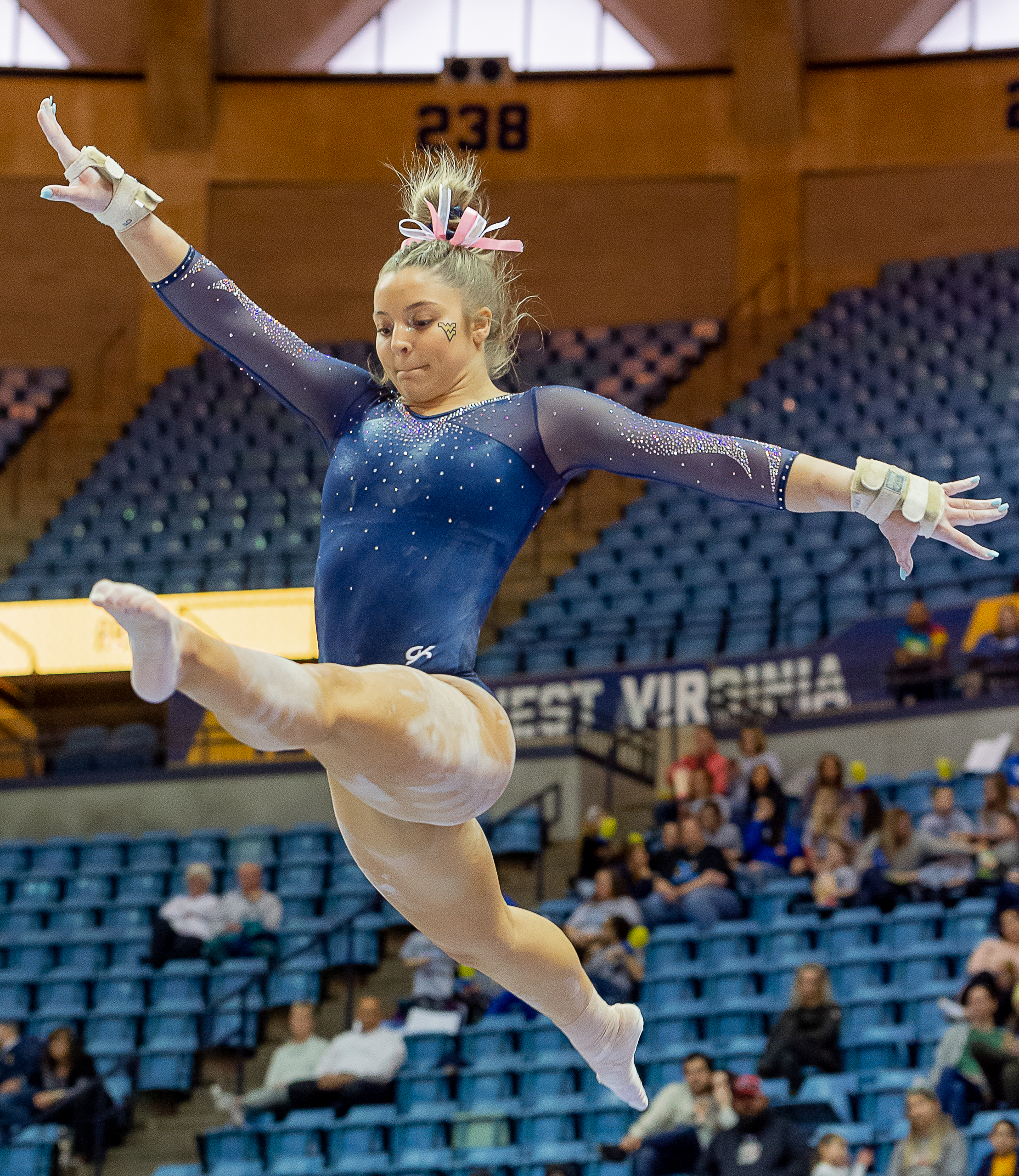MORGANTOWN — Simone Biles is the most decorated American gymnast, a sexual abuse survivor, and it was widely believed she would successfully defend her title of Olympic champion before she withdrew from the individual all-around competition at the Tokyo games, citing mental health.
“Based on the success she’s had and level of competition she’s had success at, it must have been a pretty significant issue,” said Anthony Onorato, a licensed professional counselor and founder of APO Counseling in Morgantown. “She doesn’t strike me as someone who shies away from competitive situations.”
It’s obviously impossible to know the inner workings of Biles’ mind but her decision speaks to the importance of having a sound mind and body. Traditionally, the mental side of things has been overlooked but Onorato said that has been changing — especially in light of the aftermath of the pandemic.
WVU Gymnastics Coach Jason Butts said he thinks Biles’ made the right call for her safety. Prior to withdrawing, Biles’ got lost in the element she was in and having been there, Butts said it’s scary and could lead to a serious injury.
“Ten years ago there would have been much different reactions, but there wasn’t as much awareness of mental health,” he said.
People tend to think of athletes, particularly Olympians who are the best of the best, as machines, said Mike Ryan, coach for Morgantown High School’s cross country and track team. But that’s not true.
“They are people with feelings and emotions like anybody else,” Ryan said.
He said coaches, especially those for middle and high school students, need to keep an eye on athletes for mental issues because kids won’t always notice. Making an environment where athletes and their parents feel they can discuss mental health and not treating the athletes like machines is important.
The typical coaching mentality of “Oh, suck it up and get out there” isn’t always the right thing, Ryan said. Sometimes, a coach needs to dive deeper into a problem. Excessive worrying, anxiety, the pressure of competition or even eating disorders, are all things real things coaches need to talk about.
MHS girl’s basketball coach Jason White said Biles’ decision is a way to open the line of communication about mental health, and it’s a conversation he plans to have with his team.
“Mental health is so important,” White said. “If you’re not taking care of yourself first, you can’t compete to the best of your ability. Our bodies are our tools as athletes, so if you don’t take care of those first you won’t be able to compete at the highest levels.”
White said he would love to pick his athletes’ brains on their perspectives about Biles’ choice and he’s sure there will be athletes in the program who feel she shouldn’t have withdrawn. Conversations like that allow the team to see things from different perspectives and to learn you can disagree about an issue without getting mad and having to be right or wrong.
As a coach, especially one for high schoolers, mental health is always in the back of White’s mind. White said he worries about his athletes as if they were his own kids. He tried to make sure his athletes take conversations the right way, especially during tough ones about playing time or where they rank on the team. Not hiding those kinds of things from the athletes is also important.
Sometimes after tough conversations, White calls an athlete later in the evening to make sure they are in a good place.
Even at the collegiate level of competition, Butts said he talks with his athletes about their mental health — including things that happen outside of the gym that could affect their performance.
“Personally, for me as a coach, the brain is responsible 100% for performance, so if we’re not making sure it’s as finely tuned as the body and the muscles — everything we’re physically doing to get ready — we’re not going to go anywhere near the peak performance that athlete is capable of.”
The mind can be trained like any other part of the body, Onorato said. And sometimes, just as if you don’t understand the tax code and hire an accountant, you go to an expert.
“I think there’s a perception that people who are productive or perform well never have struggles or doubts, and that’s not true,” Onorato said. “Every person on the planet has those. We all struggle with different challenges we face. Sometimes you need an expert to help navigate, so you come out well on the other side.”
Tweet @DominionPostWV




